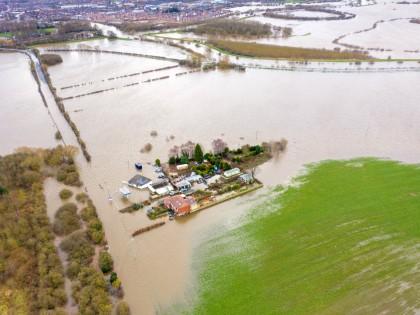- About
-
Research
- Agronomy and farming systems
-
Agricultural crop research
-
Research projects - agriculture
- About SASSA-SAI
- BioBoost
- Biomass Connect
- CTP for Sustainable Agricultural Innovation
- Climate Ready Beans - workshop presentations (March 2022)
- Crop diversity HPC cluster
- Designing Future Wheat
- Final project workshop
- Get involved
- List of materials
- News and updates
- Partners
- Rustwatch
- The Sentinel Crop Disease Surveillance Network
- The research team
- UK Cereal Pathogen Virulence Survey
- UK wheat varieties pedigree
- Weed management - IWM Praise
- Crop breeding
- Crop characterisation
- Data sciences
- Genetics and pre-breeding
- Plant biotechnology
- Plant pathology and entomology
- Resources
-
Research projects - agriculture
-
Horticultural crop research
-
Research projects - horticulture
- Augmented Berry Vision
- BEESPOKE
- Boosting brassica nutrition in smart growing systems
- CTP for Fruit Crop Research
- Develop user-friendly nutrient demand models
- Egg laying deterrents for spotted wing drosophila
- Enhancing the nutritional quality of tomatoes
- Improving berry harvest forecasts and productivity
- Improving vineyard soil health through groundcover management
- Intelligent growing systems
- Knowledge transfer for sustainable water use
- POME: Precision Orchard Management for Environment
- RASCAL
- STOP-SPOT
- UV-Robot
- Crop science and production systems
- Genetics, genomics and breeding
- Pest and pathogen ecology
- Field vegetables and salad crops
- Plum Demonstration Centre
- The WET Centre
- Viticulture and Oenology
-
Research projects - horticulture
- Crop Science Centre
- Research Projects
-
Services
- Analytical Services
- Business Development
- Commercial trial services
- Membership
- Plant breeding
- Plant characterisation
- Seed certification
-
Training
-
Technical agronomy training
- Advanced crop management of bulb onions
- Advanced crop management of vegetable brassicas
- Advanced nutrient management for combinable crops
- Benefits of cover crops in arable systems
- Best practice agronomy for cereals and oilseed rape
- Developing a Successful Strategy for Spring Crops
- Disease Management and Control in Cereal Crops
- Incorporating SFI options into your rotation
- Protected Environment Horticulture – Best Practice
- Techniques for better pest management in combinable crops
- Crop inspector and seed certification
- Licensed seed sampling
-
Technical agronomy training
- News & Views
- Events
-
Knowledge Hub
- Alternative and break crops
-
Crop genetics
- POSTER: Diversity enriched wheat (2025)
- POSTER: Genetics of wheat flag leaf size (2024)
- POSTER: Wheat yield stability (2024)
- Poster: Traits for future cereal crops (2022)
- POSTER: wild wheat fragment lines (2022)
- POSTER: Improving phenotyping in crop research (2022)
- PRESENTATION: Plant breeding for regen ag
- Poster: Designing Future Wheat (2020)
- Crop nutrition
-
Crop protection
- POSTER: Understanding the hierarchy of black-grass control (2025)
- POSTER: Emerging weed threats (2025)
- POSTER: Disease control in barley (2025)
- Poster: Weed seed predation in regen-ag (2024)
- POSTER: Disease control in winter wheat (2025)
- POSTER: Mode of action (2023)
- POSTER: Inter-row cultivation for black-grass control (2022)
- POSTER: UKCPVS winter wheat yellow rust in spring 2025 (2025)
- Poster: Management of Italian ryegrass (2021)
- POSTER: UKCPVS winter wheat rusts - 2024/25 review (2025)
- POSTER: UKCPVS disease monitoring and the benefit to UK growers (2025)
- POSTER: Diagnosing and scoring crop disease using AI (2025)
- POSTER: Finding new sources of Septoria resistance (2024)
- POSTER: Fungicide resistance research (2024)
- POSTER: Detecting air-borne pathogens (2024)
- POSTER: Oilseed rape diseases (2024)
- POSTER: Fungicide resistance research (2024)
- POSTER: Improving chocolate spot resistance (2022)
- Poster: Pathogen diagnostics (2022)
- Fruit
- Regen-ag & sustainability
-
Seed certification
- POSTER: Wheat DUS (2024)
- POSTER: Innovation in variety testing (2024)
- POSTER: AI and molecular markers for soft fruit (2024)
- POSTER: Barley crop identification (2023)
- POSTER: Herbage grass crop identification (2023)
- POSTER: Herbage legume crop identification (2024)
- POSTER: Minor cereal crop inspecting (2023)
- POSTER: Pulse crop identification (2023)
- POSTER: Wheat crop identification (2023)
-
Soils and farming systems
- POSTER: Checking soil health - across space and time (2024)
- POSTER: Checking soil health - step by step (2024)
- POSTERS: Changing soil management practices (2022)
- Poster: Monitoring natural enemies & pollinators (2021)
- POSTER: Soil structure and organic matter (2024)
- POSTER: Novel wheat genotypes for regen-ag (2024)
- Video: New Farming Systems project (2021)
- Video: Saxmundham Experimental Site (2021)
- POSTER: Impact of prolonged rainfall on soil structure (2024)
- POSTER: Soil & agronomic monitoring study (2024)
- POSTER: The impact of rotations & cultivations (2024)
- VIDEO: Great Soils; soil sampling guidelines (2020)
- Poster: Soil invertebrates within arable rotations (2024)
- VIDEO: Soil health assessment (2021)
- POSTER: Saxmundham - modern P management learnings
- POSTER: Saxmundham - 125 years of phosphorus management
- Poster: Soil phosphorus - availability, uptake and management (2025)
- POSTER: Morley long term experiments (2025)
- POSTER: Exploiting novel wheat genotypes for regen-ag (2025)
- Video: Saxmundham Experimental Site (2021)
- Varieties
Weathering the perfect storm

It is now confirmed, 2023 was the warmest year on record with average global temperatures around 1.5°C above pre-industrial levels. In the past few years we have seen extremes of weather which are directly impacting on crop productivity. This winter has seen widespread flooding, could next summer bring another devastating drought?
That would not be a surprise. These changes are also creating the ideal conditions for the emergence of new pests and diseases.
In 2009, Professor Sir John Beddington predicted a “perfect storm” of conditions that would lead to food shortages by 2030.
Launching the Foresight report on global food security, he said that in Britain food shortages would drive increased imports, and forecast that the country will become less able to grow crops as higher temperatures become the norm. We should also add today to these conditions the impact of wars and human conflict.
Yet Professor Beddington also offered optimism that science and innovation could come up with solutions to weather the ‘perfect storm’ of food shortages, water scarcity and depleted energy resources.
He said: “We need investment in science and technology, and all the other ways of treating very seriously these major problems. 2030 is not very far away.” Inclusion of food and agriculture in the COP28 discussions in December 2023 also served to highlight the critical role of agricultural innovations in achieving food security and climate goals sustainably.
Innovation in farming
It was also in 2023 that the Genetic Technology (Precision Breeding) Act received Royal Assent. This Act aims to modernise crop and livestock breeding, and as such represents an important milestone, the first time in decades that new legislation in the UK has been brought forward which seeks to enable, rather than restrict, the use of advanced genetics for agriculture.
It was also the year in which the potential for artificial intelligence (AI) to do good and bad was established in the public debate. The winter 2023/24 issue of NIAB Landmark explains how we’ve invested in AI to help further our ability to collect and curate data.
Implementation of the Sustainable Farming Incentives (SFI), the new farming payments introduced by Defra as part of the transition away from the basic payment system, includes support for interventions that reduce the use of fertilisers and other inputs with the objective of delivering environmental aims such as biodiversity net gains whilst maintaining current yield levels.
But, will this the case? This was one of the questions put to Secretary of State for Environment, Food and Rural Affairs Steve Barclay following his announcement of changes to the SFI scheme at the Oxford Farming Conference in early January 2024, including higher payment rates and fifty new SFI actions. He also announced new scheme funding for precision farming and the roll out of new technology.
These announcements are clearly designed to increase farmer uptake of the new payment schemes, which to date has been low. And the sentiment in the room was that it represents progress in the right direction but a key question remains: without proper assessment of the base line and in the absence of metrics to monitor progress over time, how can we assess the impact of these interventions? These points need addressing.

NIAB CEO Professor Mario Caccamo at the Oxford Farming Conference, January 2024
The farming conferences in Oxford, original and ‘Real’, are a great warm up to kick start the year after the Christmas Break. As a newly appointed Director of the Oxford Farming Conference, I had the opportunity to experience the behind-the-scenes preparation that goes into delivering this event, and it does not let you down.
The agenda for this year’s meeting featured presentations by the Secretary of State, his opposition counterparts, and a range of speakers inspired by the theme of meeting: the power of diversity. The Oxford Farming Conference also commissioned a report entitled: “Is our UK supply chain broken?”
My interpretation is that it is not broken, but the UK’s food system is under considerable stress. The growers are taking the lion’s share of the risks in farming under challenging conditions.
These risks are diverse and range from the uncertainty of the economic climate to the erratic patterns of the weather. The report concludes that we are living an era marked by change and volatility. Taking risks is just a consequence of that. In the risk vs rewards equation, however, the growers see little in return.
A recent survey of NIAB’s members confirmed that farmers would welcome more information to help them manage these risks, including access to consistent metrics and reliable assessments of the impact of their management decisions. This is particularly relevant in the context of the increasing value chain interest in sourcing products from regenerative agriculture systems.
Without the backing of solid scientific research, there are concerns that some of the policies and practices involved could negatively impact yields and domestic food production. A reduction in UK farm output would not only increase our dependence on food imports but could also result in potentially more harmful environmental impacts elsewhere.
High carbon capture cropping
NIAB has consistently sought to deliver the scientific research and evidence needed by farmers and growers to support sustainable and efficient crop production systems while at the same time mitigating and adapting to climate change. As an example, NIAB Landmark includes an update on the Centre for High Carbon Capture Cropping (CHCx3), a large consortium led by NIAB that aims to help UK farmers build farm resilience through diversified cropping and offsetting of emissions.
Input-efficient crops that can increase carbon capture will help farming and associated industries address climate change, but there must be confidence in achieving profitable and sustainable outcomes. We should expect a warmer 2024, but also further advances in the tools we have at our disposal to address the associated challenges.
We need to do more to reduce the emissions from agriculture, increase crop yields and at the same time adapt to climate change. Let science and innovation help us resolve today the problems of tomorrow!
This article originally appeared in the Winter 2023/4 edition of NIAB’s Landmark magazine. Landmark features in-depth technical articles on all aspects of NIAB crop research, comment and advice. You can sign up for free and get Landmark delivered to your door or inbox:





